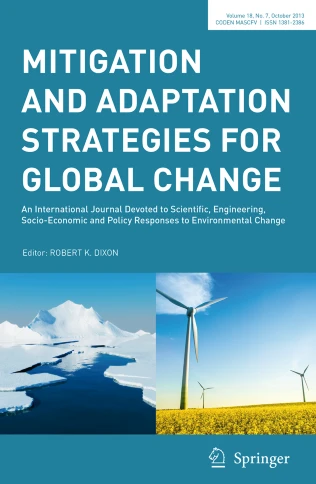Distributional impact of climate‑smart villages on access to savings and credit and adoption of improved climate‑smart agricultural practices in the Nyando Basin, Kenya
Abstract
Adoption of improved livestock breeds requires, as with other climate-smart agricultural (CSA) practices, upfront investments, which might be a significant barrier for smallholders. For this reason, the climate-smart village (CSV) approach not only includes CSA interventions, but also interventions to improve access to savings and credit among smallholders by means of a community-based approach. In this paper we study smallholders in CSVs in Kenya who were encouraged, among others, to adopt improved livestock breeds for crossbreeding with indigenous breeds to improve their resilience to climate change and variability. The farmers were also encouraged to become part of savings and credit groups to improve smallholder access to finance. The objective of this paper is thus to determine the (distributional) impact of CSVs on access to savings and credit and the adoption of improved CSA practices. Due to the as good as random selection of CSVs, we are able to estimate the treatment effects on the treated for the smallholders who decided to participate in the CSA intervention by means of a linear probability model. The analysis is based on a balanced panel of 118 farm households interviewed in 2017, 2019, and 2020. The main findings of this study are that the CSV intervention increased the adoption of improved livestock breeds. It also stimulated the membership of savings and credit groups which in turn stimulated the adoption of improved livestock breeds. These findings point to the importance of community-based savings and loan initiatives to mobilize finance among farmers enabling them to invest in CSA practices. Also, the introduction of improved breeds in CSVs has benefited especially the larger livestock owners. However, the availability of credit is found to have mitigated the concentration of improved livestock ownership since the diffusion of improved livestock in CSVs was somewhat more equitable than the (spontaneous) spill-over diffusion in the non-CSVs (reducing the Gini by 0.04).

